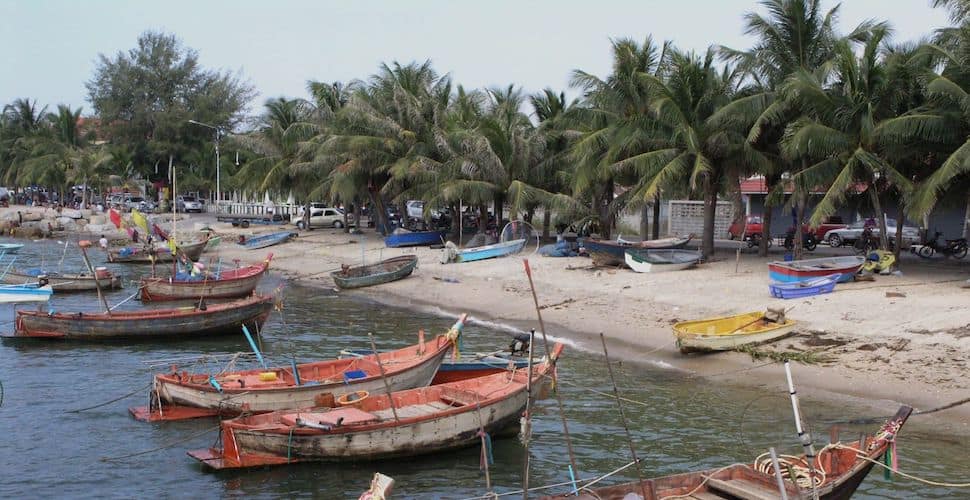Fisherman from across Thailand gathered outside the agriculture ministry in Bangkok on Tuesday to protest against industry regulations that were ironically designed to protect them and their labor rights.
The regulations were enacted in 2015 in response to international outrage over labor conditions on Thailand’s fishing boats, where investigations had uncovered widespread violence, trafficking, and forced labor. After the European Union threatened a ban on the country’s seafood exports, the Thai government began to crack down on illegal, unreported and unregulated (IUU) fishing in an attempt to curb exploitative practices in its lucrative seafood sector.
But the thousands of fishermen protesting in Bangkok allege that the regulations have only hurt them. Speaking through megaphones from under colorful umbrellas, the protesters complained that the strict regulations have led to hefty fines and pushed many fishermen into unemployment.
Thomson Reuters Foundation reports:
“We’ve lost everything in the past five years. If we don’t get any answers today, we won’t leave,” said one fisherman from the southern province of Rayong.
Mongkol Sukcharoenkana, president of the National Fisheries Association of Thailand (NFAT), said the reforms and costly fines had caused many fishermen to lose their jobs.
“If the government won’t fix the problems for us, we’ll just oust them,” Mongkol told Reuters.
But the international community is urging the Thai government not to back down. The reforms have been praised for improving oversight and limiting forced labor in the sector, and the EU lifted its ban threat in January this year. International organizations including the London-based Environmental Justice Foundation fear that a rollback of reforms would bring the country back to the “dark days” of exploitation and violence.
The case illustrates the complexity of tackling forced labor in a country – and an industry – where informal work is common. The events of Tuesday would suggest that many fishermen in Thailand prefer the prospect of potentially exploitative work to that of no work at all. The protest serves as an important reminder that simply regulating labor is an insufficient strategy against forced labor. Addressing its root causes, including poverty and inequality, is a crucial part of the fight.







Freedom United is interested in hearing from our community and welcomes relevant, informed comments, advice, and insights that advance the conversation around our campaigns and advocacy. We value inclusivity and respect within our community. To be approved, your comments should be civil.
According to the Thai Fishery Department, the catch within the Gulf of Siam was about 360Kg per hour in the sixties. Now it is down to 18Kg per hour. The fishermen in Thailand would be well advised to put their fishing gear aside for two years, to allow the stock to replenish, and rather help to protect the Gulf from any kind of commercial fishing.